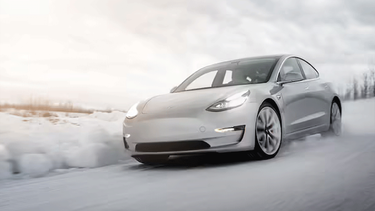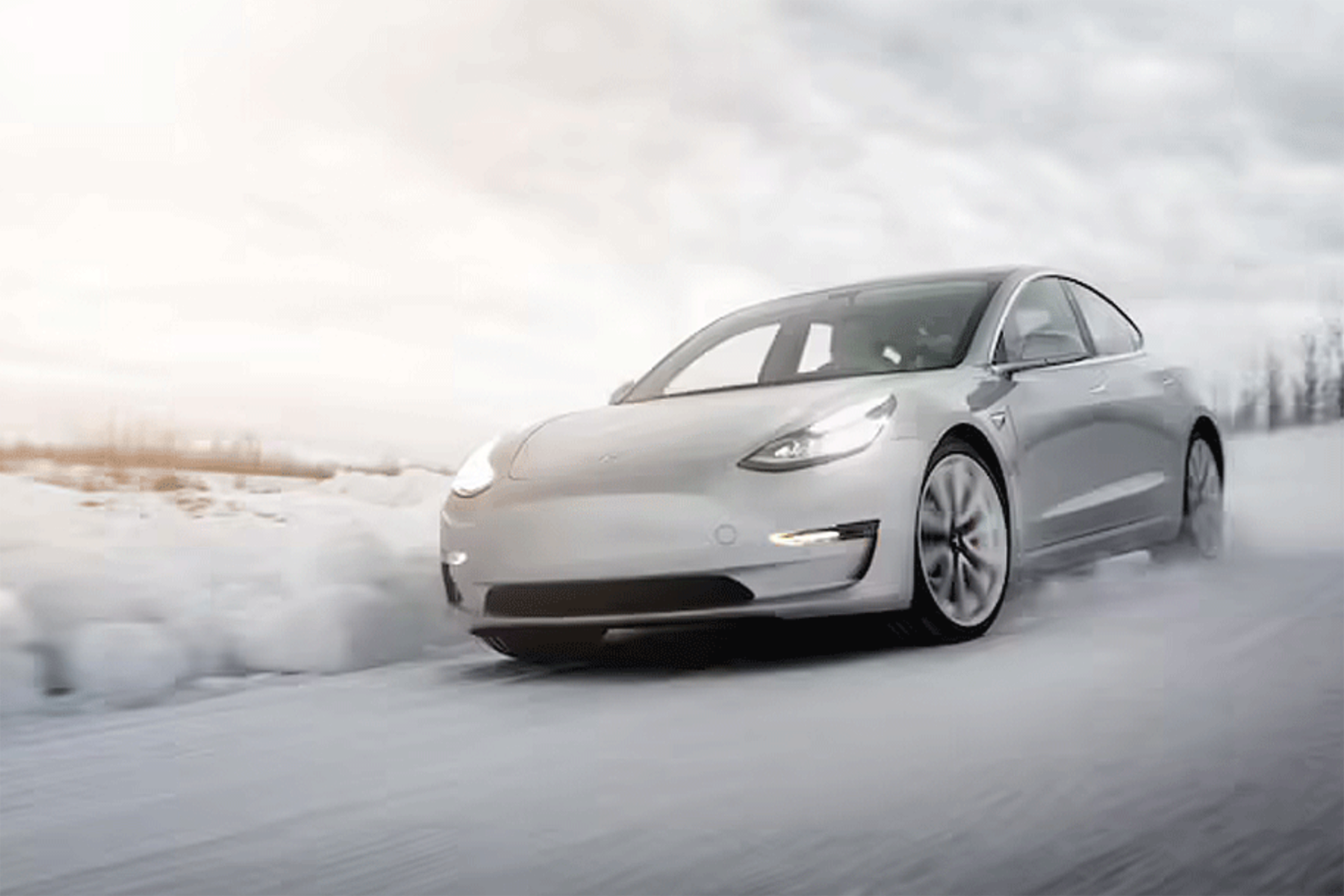A new study looks at how much cold weather affects the battery range of 13 all-electric models—turns out it varies a lot

Article content
- The EVs studied lost between 3 and 32 per cent of range in cold weather
- Reasons can include battery chemical processes and how warm you keep the cabin
- The loss is temporary and improves as the weather gets better
Advertisement 2
Article content
It’s no secret that electric vehicles (EVs) lose some of their battery range in cold weather, but exactly how much is “some”? According to a new report from U.S.-based battery analysis firm Recurrent, it can be as much as 32 per cent in freezing conditions.
The company compared data from 7,000 vehicles across 13 models. This included estimated range in cold weather from on-board telematics; and verified range from real-time usage data and on-board devices, taking into account variables such as driving speed, uneven terrain, and battery age.
The vehicles in the survey are the Audi e-tron; BMW i3; Chevrolet Bolt; Ford Mustang Mach-E; Hyundai Kona EV; Jaguar I-Pace; Nissan Leaf; Tesla Model 3, Model S, Model X, and Model Y; and the Volkswagen e-Golf (which is no longer sold) and ID.4. The vehicles were rated at temperatures of 70°F (21°C) and then at temperatures between 20°F to 30°F (-6°C to -1°C).
Advertisement 3
Article content
Of those, the I-Pace lost the least in cold weather, dropping by just 3 per cent; while the Bolt got hit the hardest, losing 32 per cent of its range.
- Audi e-tron Premium Plus: -8% (estimated)
- BMW i3 42-kWh: -24% (estimated)
- Chevrolet Bolt 60-kWh: -32% (estimated)
- Ford Mustang Mach-E Premium AWD 99-kWh: -30% (verified)
- Hyundai Kona: -19% (estimated)
- Jaguar I-Pace: -3% (estimated)
- Nissan Leaf SL/SV Plus 62-kWh: -21% (verified)
- Tesla Model 3 Long Range 75-kWh: -17% (verified)
- Tesla Model S P100D: -19% (verified
- Tesla Model X 75D: -15% (verified)
- Tesla Model Y Long Range AWD: -15% (verified)
- Volkswagen e-Golf 36-kWh: -23% (estimated)
- Volkswagen ID.4: -30% (verified)
There are a few reasons for batteries to lose their range when the thermometer drops, but Recurrent pointed to such circumstances as the cold inhibiting the battery’s chemical reactions and acting as resistance to slow down its processes. And you want to stay warm inside your vehicle, so you turn up the heat. In a gasoline-powered car, this is done using waste heat generated by the engine. An EV’s electric motor creates less heat, and what it does make is used to warm the battery. To warm the cabin, the vehicle uses an electric heater, which generally draws power from the battery and reduces its range.
Advertisement 4
Article content
Recommended from Editorial
-
Motor Mouth: 5 Times the battery range, one-fifth the weight!
-
Porsche Taycan extends battery range with new software updates
There are also a few factors to explain why some vehicles on the list are so much better than others. Some, such as the Audi e-tron and I-Pace, include a heat pump to warm the cabin without stressing the battery — and Recurrent notes that across several brands, Canadian-market cars are more likely to include them, especially since most EVs in the U.S. are sold in California where it isn’t as necessary. Some others don’t, including the Mach-E.
Most EVs use a liquid cooling system to regulate the battery’s temperature – cooling it in summer and warming it in winter – but the Leaf and e-Golf use air cooling, which is simpler and cheaper, but also less effective. Tesla uses a “very proactive thermal management system,” Recurrent said, and some of its vehicles use the battery’s thermal mass to store heat for warming the cabin.
The good news, the company said, is that the cold-weather range loss is temporary “and there is no long-term detriment to your battery,” and the expected range should return as temperatures rise.
Stay connected with us on social media platform for instant update click here to join our Twitter, & Facebook
We are now on Telegram. Click here to join our channel (@TechiUpdate) and stay updated with the latest Technology headlines.
For all the latest Automobiles News Click Here

